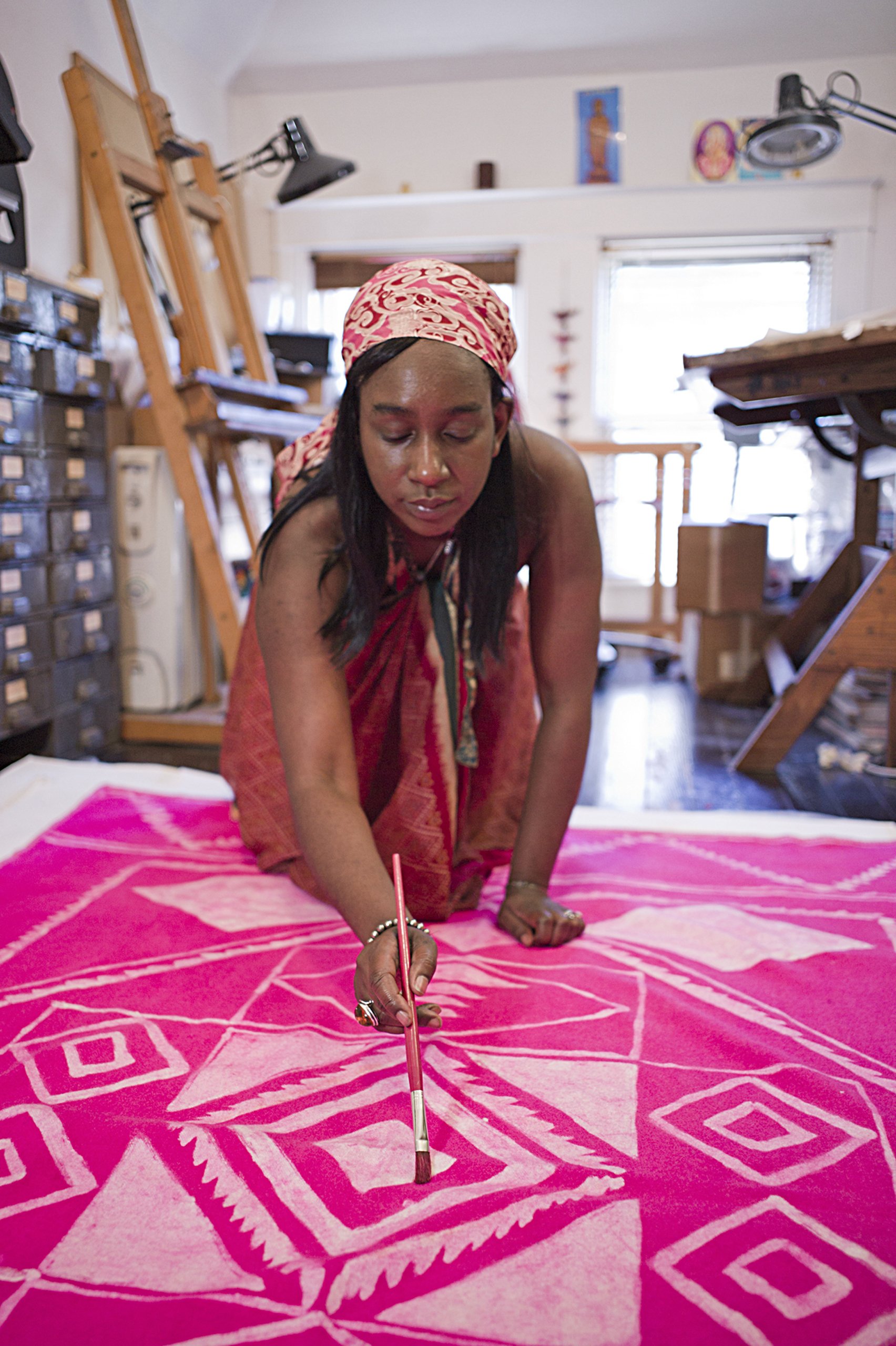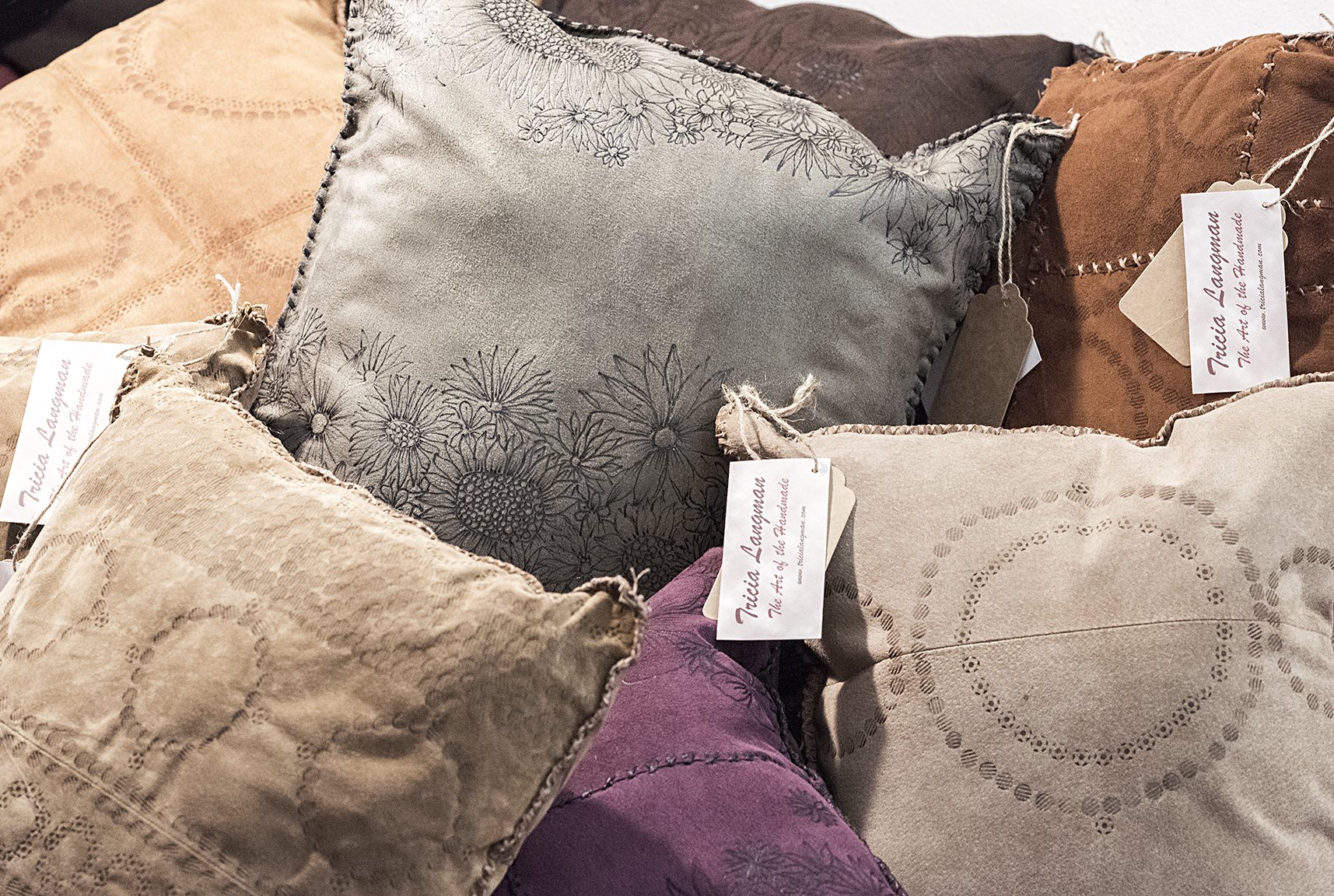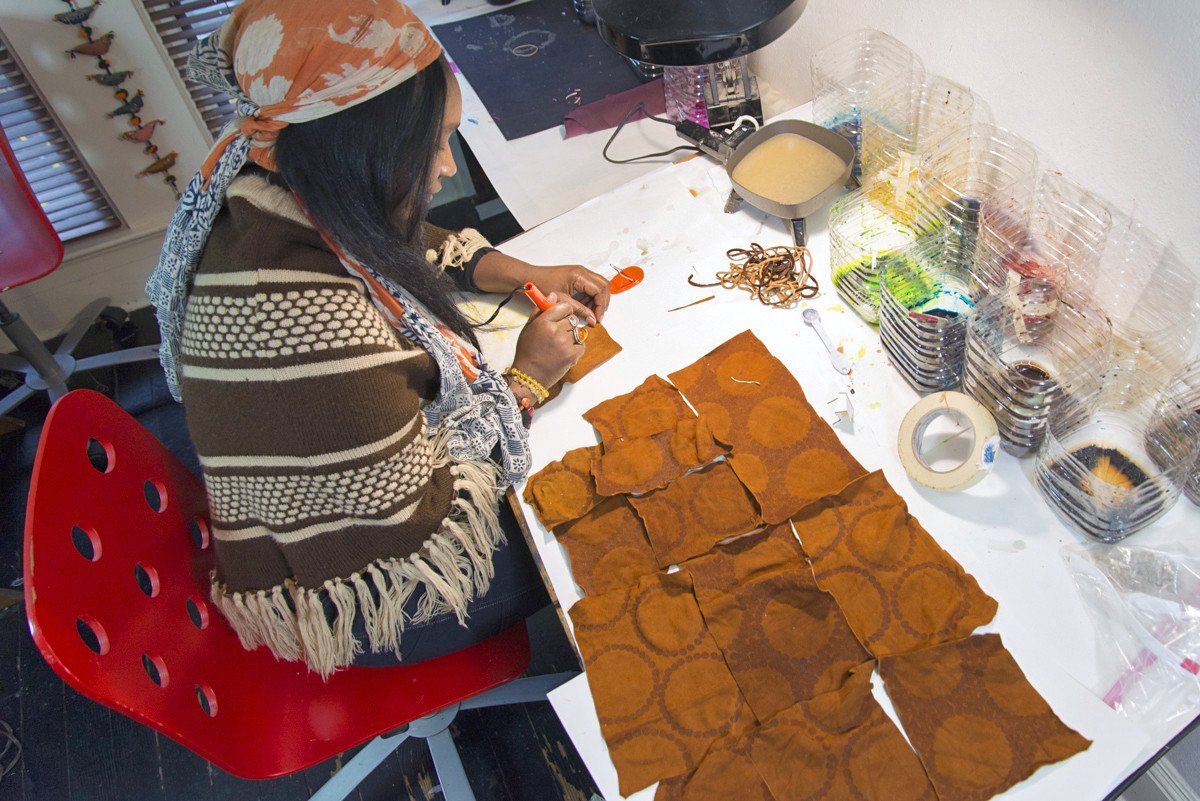The need for comprehensive fashion education from childhood and beyond, to help collectively shift awareness about how our clothes are made
In episode 288, Kestrel welcomes designer, Trish Langman, to the show. With over 18 years of experience working with a long list of prestigious fashion brands, Trish is currently the Program Knowledge and Content Lead for the Fashion CEOs Accelerator program by Sovereignty, a partner with Argentinian NGO Hecho Por Nosotros and an advisor to the Board of Fashion Ghana, West Africa.
“Obviously, the companies need to be complicit — you know, they should stop making stuff. But the consumer, you know, because they’re uneducated, they don’t understand what they’re buying. It’s just a piece of clothing, but they’re not thinking about any consequences of how it’s made or what it does to them. Is it shedding microplastics, is it clogging the water? The consequences of you buying something that costs two dollars means that somebody’s not being paid somewhere.”
-Trish
Have you ever thought about some of the basic knowledge that’s shared with us in primary school? I’m thinking about the practical information that can help us in our everyday lives.
For example – as this week’s guest mentions, the food pyramid is something most of us have probably learned about in school. (Ok, so I’ve read a plethora of concerns about the traditional food pyramid and how it was largely influenced by big business — hint, hint: grains, especially refined ones, are not necessarily the food we should eat the most of…) BUT the point here is, the idea of a balanced diet is relayed to us at an early age. It’s a basic component of the education system.
However – how often are kids learning about the ingredients used in our clothes? How often are we taught that the fabric used in our garments can come from a plant grown on a farm, or from fossil fuels that are processed into thread?
There are a lot of layers at play, when it comes to who can access which clothing options. But with that in mind … we should have the right to learn basic practical knowledge about clothing in school, beginning at a young age.
Because let’s be real – how many of us have finally been collecting pieces of this practical clothing knowledge as adults?
This week’s guest is very passionate about the power of education – for children, for everyday people, and for business owners. In one of her most recent endeavors, she’s working as the content lead for a new Fashion CEOs accelerator program that’s focused on empowering fashion entrepreneurs of color to collectively solve climate change and inclusion challenges.
The focus is on transforming entrepreneurs in a more holistic way through both access to capital and access to layers of education, with the intention of helping folks build more circular fashion brands.
As this week’s guest said in an article in Women’s Wear Daily –
“I have not seen this in the industry … I have not seen an accelerator that speaks to circularity, that speaks to sustainability and that speaks to the BIPOC community. It’s just something that’s not there.”
Quotes & links from the conversation:
“New Fashion CEOs Accelerator Set To Advance The Industry’s Sustainable Business Models and Its Racial Representation”, article in WWD that Kestrel mentions
“You know, at the moment, every company has their sustainability manager, but it doesn’t really mean anything — it’s just the box they tick off. You know, they're ESG person, their social responsibility person ... not all, but a lot. So, just really making sure there’s that understanding, there’s that education, just the awareness.” -Trish (19:45)
“People have changed I think, in terms of how they see the value of their business. I think a lot of people feel like their business has to, for them, mean more to them than just making money. It’s more about what they give back to their community in some way.” -Trish (30:52)
“In order for us to sort of think about the future, science and design need to come together. You know, about a hundred years ago, science and design and arts were kind of almost interlinked — sort of the alchemy of them all together. And then we got more industrialized and technology took over, and they just seemed to separate.” -Trish (48:50)









